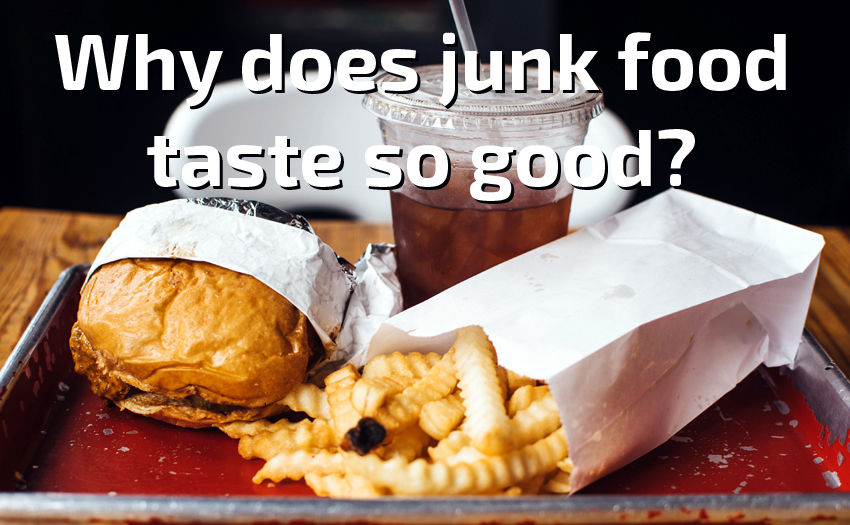The simple explanation is that processed foods are actually engineered to be addictive as a business strategy. Meaning manufacturers need these “foods” to maximally spike dopamine (your brain's novelty and reward neurotransmitter) so that you'll keep coming back for more. Food engineers do this by incorporating the perfect levels of salt, fat, or sugar in the food and providing interesting textures and mouth-feels that enhance the sense of novelty while you're eating these foods.
Humans are naturally hard-wired to seek out salty, fatty, sugary foods because in nature, these foods tend to have a lot of nutrition. Just think... a fatty ribeye... sweet, precious honey... a briny oyster. Those are the types of natural foods our ancestors would have prized, and they would have attained solid nutrition from these options. Processed junk food, on the other hand, is typically very low in nutritional value. This is because food engineers want these foods to elicit a craving for more without the risk of making you feel full. (When foods contain a lot of nutrients, they tend to make you full and satiated.)
Another way food engineers design addictive foods is by using simple grain flour, such as in the case of wheat bread, that break down rapidly into simple sugars. Bread doesn't actually pack the same flavor punch as commonly engineered junk foods, but it's one of the most addictive foods on the planet because it delivers a quick spike in dopamine when you eat it. This is why people consider foods made from simple grain flours to be "comfort foods". Also, the simple sugars in bread, pasta, and crackers are quickly swept out of your bloodstream by insulin, making you hungry again shortly after eating. Think about it: you can eat tons of pasta or bread in volume and usually stop eating due to the stomach being stretched to capacity, not because you feel satiated.
The biggest issue is that the dopamine system that junk food takes advantage of is responsible for our motivation, drive, and happiness. Having this delicate system down-regulated, the way it is when you live on sugar and junk food puts you at severe risk of depression and other mental disorders. And the fact that you don't feel good without your dopamine hit makes it much harder for you to change your habits long term.
Processed foods are intelligently-designed food drugs. Your brain and taste buds have been hijacked into believing that truly flavorful, healthy foods like beef, milk, fruit, and fish have no flavor... because they don't provide a dopamine spike.
So what can you do about it?
Commit to 30 days without processed foods or junk.
You can begin to recover dopamine sensitivity (and taste sensitivity) in as little as 2 weeks, but would notice larger changes in 30 days. What happens is the more you eat these dopamine-spiking junk foods, the more of these foods it takes to get the same spike in dopamine. If you were to take a break from the junk, you'd notice that you are more sensitized. It will take much less sugar or junk food to get the same effect, which will make it hard for you to eat the same amounts. If you go 30 days without soda, you'll realize just how overly sweet soda really is. It's the same level of sweetness it was before, but your tongue and brain were both numb to it.
Shop the perimeter and use the “5 or less” ingredients rule.
By shopping around the perimeter of grocery stores, you can avoid most processed and packaged foods. If it's not in your house, you won't eat it.
Another tactic is to start buying foods with fewer ingredients. Food products with more than 5 ingredients are more likely loaded with additives that have the sole purpose of making you eat more.
Nourish your body with real food.
The goal will always be to structure your nutrition around real foods. Meat, seafood, raw dairy, and fruit should be the staples of a nourishing diet. Approach eating from a place of utility and health-building, not a way to fill a void, handle stress, or dull your emotions.
It takes time to develop a healthy relationship with food, but it has to come from the mindset of health-building, not punishment, and not coping. Always ask yourself if you're eating for hunger... or for some other reason.
